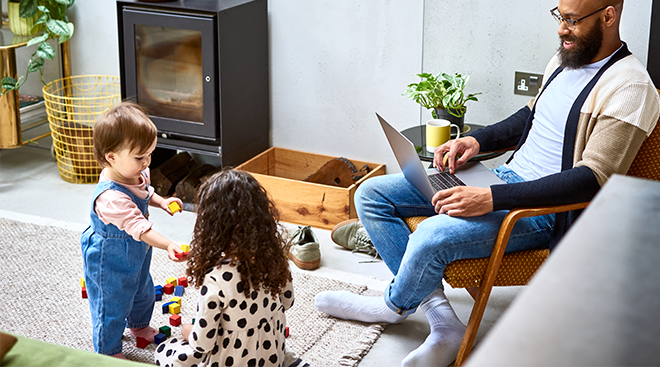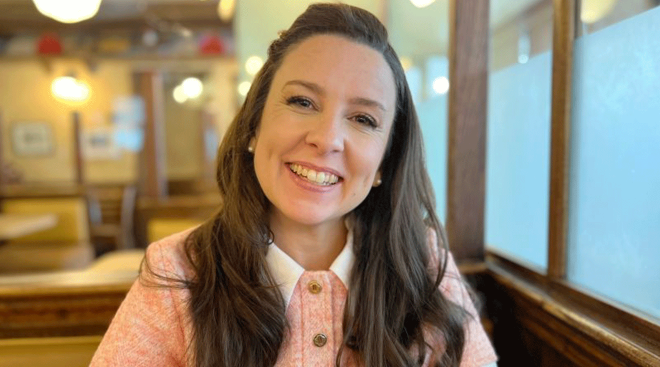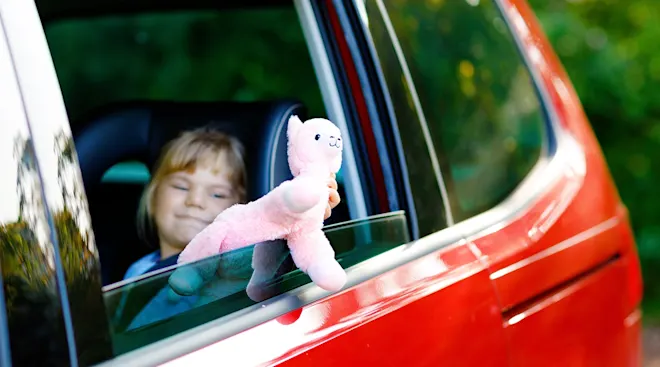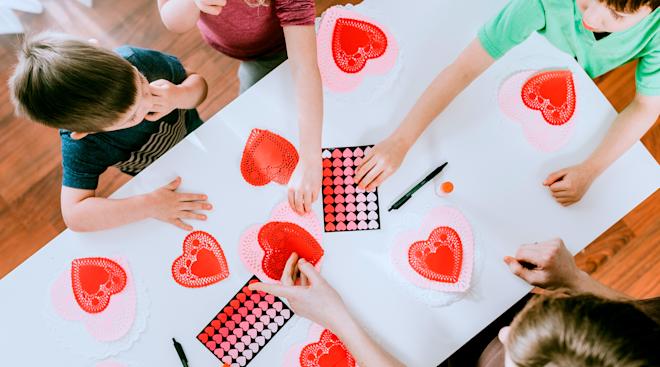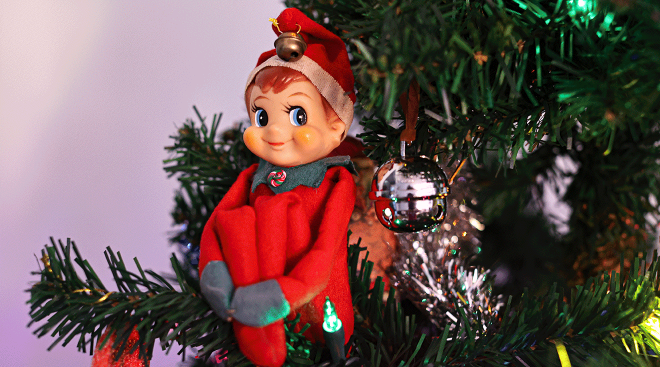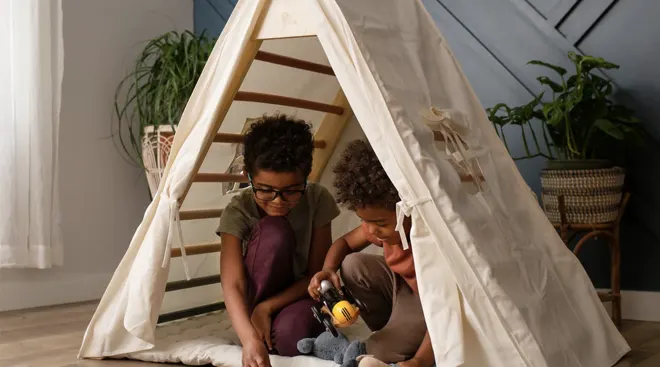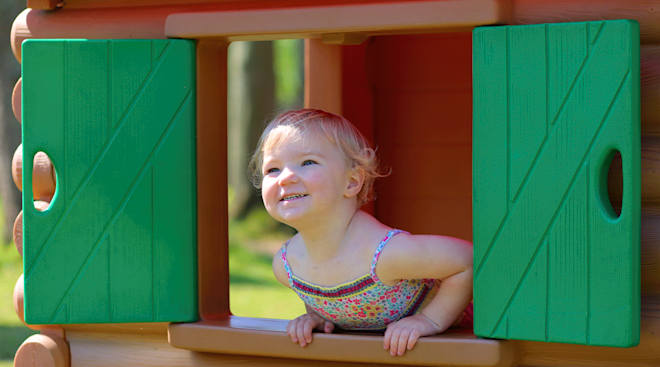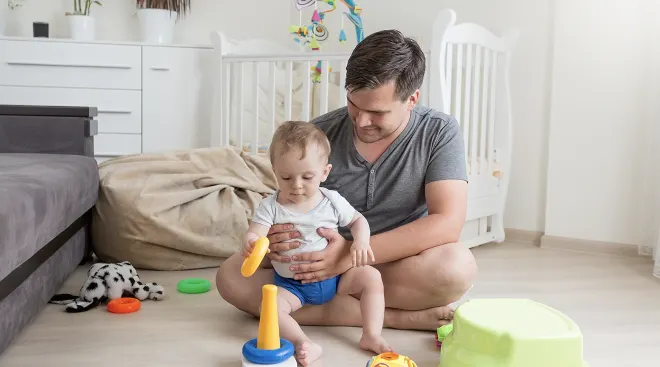Why It’s Totally Okay to Let Your Child Be Bored (So Drop the Guilt!)
The best way to encourage development is to keep your child busy with structured learning activities and crafts all day long—right?
Wrong.
If you find yourself scrolling through Pinterest and Instagram searching for activity ideas to keep your little one occupied, you’re not alone. At one point or another, most of us have sifted through the countless posts about colorful sensory bins and extravagant crafts and felt completely overwhelmed trying to figure out if we have the right supplies on hand and the time to get it all set up.
As a mom of two young children myself, I’ve certainly felt the pressure to do all of the activities. But thanks to my background as a developmental therapist working with babies and toddlers, I know there’s another excellent option that you won’t find through a Pinterest search: Letting your child be bored. (Yep, you read that right!)
The truth is that letting babies and toddlers (safely) spend time independently is just as important for gaining new skills as time spent interacting with caregivers.
Slowing life down a bit and letting your child be bored can have lots of benefits. One of the first things you may notice even in very young babies is that it allows them to explore on their own. They seek out what interests them instead of relying on us to provide them with something to be interested in. They’ll look around their environment, cue into the sounds that intrigue them and play with their own hands.
In older toddlers you may see boredom spark creativity. For example, the other day I was making dinner while my kids played in the living room. When I walked in to check on them, I found them building and knocking down towers of toilet paper rolls! They had found our extra stash and decided to put it to good use, entertaining themselves for a good portion of time. By having the chance to “be bored,” they found their own way to entertain themselves and work on skills such as teamwork, fine motor coordination and cause and effect, all without me having to set up or plan any learning activity.
Problem-solving skills are also sharpened when we let our little ones play independently. Notice how a baby will wiggle, roll or crawl to figure out how to get to something they have their eye on? They’re naturally curious and motivated by the little things in their environment.
There are plenty of opportunities to inspire learning and build connection with your child during daily routines that you’re already an active participant in, such as diaper changes and daily chores. Being an observer during playtime instead of always being an active participant can give our little ones opportunities to figure things out in their own way.
Another major benefit of letting your child play on their own? It gives you a break as a parent! When our children learn to entertain themselves, we can sit down and have that much-needed cup of coffee, guilt-free.
1. Create a Safe Space
One of the most important things to keep in mind when preparing your little one for independent play is safety. You will want to baby/toddler-proof any area that your little one will be in. If your child is young you may need to stay near them, but instead of being an active participant you can just be an observer in their play, or do a different task such as reading a book or folding laundry while your little one plays nearby.
2. Limit the Number of Toys Out
Does your child jump from one toy to the next without ever really engaging in something? This could be a sign that you have too many toys out. In order to encourage more focused play, limit the number of toys you put out. That doesn’t mean you need to get rid of toys if you have too many—but putting some away in a closet and using a toy rotation system may be helpful.
3. Step Away Gradually
If your child isn’t comfortable with being away from you, you may want to stay near them at first and slowly increase the space between you as they gain confidence. This could mean starting out sitting next to them as an observer and then moving to another task, such as folding laundry, in a spot farther away but where they can still see you.
4. Limit Distractions
A child watching TV is not participating in independent play. Turn off the television and limit other activities that may distract them from their play. This will allow them to be fully focused and engaged in play.
5. Lower Expectations
Not all kids will naturally take to independent play easily. For some children it will be more of a challenge. If independent play is tough for your child, your first goal may be only a few minutes of independent play. You can slowly build on that, minute by minute. Start off with five minutes and see what happens. If it goes well, try for seven. If your child keeps checking in with you, it may be helpful to set a timer and let your child know that you’ll come join them when they hear the beep.
Interacting with our children is important, but letting them play on their own is crucial to development as well. As with all things, balance is key! So instead of stressing yourself out searching for the latest activity to encourage development, pick up a cup of coffee and a good book without feeling an ounce of guilt, and watch the magic unfold.
About the expert:
Kayla O’Neill, M.Ed., is a developmental therapist and parenting coach based in Indiana. She has been supporting parents of babies and toddlers in early intervention since 2010. You can sign up for Kayla’s free five-day learning guide that inspires learning through daily routines and play time at her website, www.parentingexperttomom.com. Follow her on Tik Tok, Instagram and Facebook.
Plus, more from The Bump:
Navigate forward to interact with the calendar and select a date. Press the question mark key to get the keyboard shortcuts for changing dates.
































